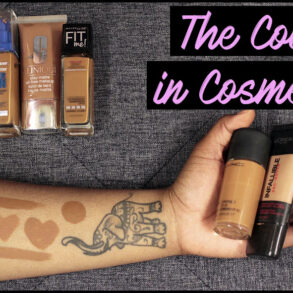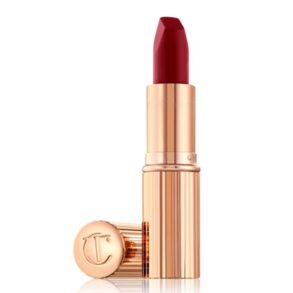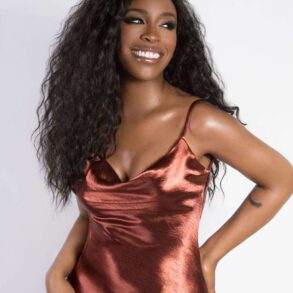When Salt Lake City native Gabriella Miranda was in third grade, she was given an assignment to perform a recitation of a poem. The students dressed up, parents were invited, and tea and cookies were served at the reading. It all had a big impact on young Miranda – she said it was the first time she saw herself in poetry and it ignited her interest in the form.
She chose to recite “The Girls in the Circle” by Nikki Giovanni.
Miranda was inspired by the writing, because “even at that point, it felt like so much of the stories I had found and encountered surrounding Black people and the Black experience, as a half-Black woman myself, had been surrounded by narratives of segregation and slavery,” she explained.
“And this was a poem about girls in a circle putting on makeup, dressing up. And to me, that was just so special and formative. I could very much see myself in that poem.”
It made her feel like “a regular kid,” she reflected.
“It framed my perception in a way that felt more empowering so that I could appreciate and enjoy the same things my other peers, or white peers, could focus on.”
Now 17 years old, Miranda has just been declared a National Student Poet, representing the West region of the country. Only five are selected every year – it’s presented by The Institute of Museum and Library Services and the Alliance for Young Writers & Activists. Winners are chosen by a jury of established poets and arts and education leaders.
Miranda attends Rowland Hall in Salt Lake City and serves on the United Nations Foundation Girl Up Global Teen Advisory Board. Her poetry explores human relationships, the complexities of connection and building identity.
Being a National Student Poet requires a service project. Miranda plans to focus on students of color, particularly women, to help them have an experience like she had in third grade – to feel seen and included in Utah.
Her plan is to lead writing workshops for developing poetry. She wants to connect with people “who may be interested in poetry but may not think it’s accessible or relevant to them, or maybe are deeply interested in poetry and writing, but may not have had the outlets and opportunities to explore it.”
“I think poetry is always something that should be treated as accessible. And I think that’s why I’m so happy to be in this program and to be in this position.”
This interview has been edited for length and clarity.
Ciara Hulet: Are these workshops something you think Utah particularly needs?
Gabriella Miranda: Definitely. I think Utah is definitely an evolving state that’s growing and prioritizing diversifying. But I think there are still areas for improvement. Something that was very, very important and informative to me was the previous Utah poet laureate, Paisley Rekdal, a woman of color. She came to speak to my creative writing class and just hearing her perspective and hearing her talk about her poems, it felt like it opened up a complete new avenue of expression and exploration for me.
Visibility in that representation is very important. Even if it’s not looking at poems explicitly that talk about race or talk about that perspective, still being able to see that there are people who look like you who are poets.
I know in recent months, especially this year, there’s been many moves to kind of inhibit, and I think to a certain degree, censor things that are mentioned in classrooms and in curriculums. And so I think any way or any means to open up new pursuits of expression and being honest and your authentic self is something that I think the state of Utah, and really any state, could benefit from.
CH: Can you share a poem you’ve written?
GM: Absolutely. I’ll share my poem, “Kerosene.” I wrote this during a time when I was struggling to sort of feel inclusion as a person of color. So I’ll just get into it.
And there it is,
splaying the pavement open,
full-moon arteries tart
from pomegranate twine
flossed from between my teeth, still- warm
dusk graying the milk strained
from a bedside-table tap,
and I am slick as a gecko,
greasy from my hair
that is asleep outside of my body.
Clothes sticky
like laundered linen,
skin starched
like malted taffy.
My tastebuds dilate like swiss,
and my mouth sifts your palm for salt
with a thirst I haven’t been taught,
and you see me as an apparition
or something less obtrusive,
depending on the color I paint you.
Later I put my feet in your shoes,
clay in a satin kiln,
and I thank you without reason.
But with lots of teeth.
We sit in the cacophony,
backs straight as popsicle sticks,
vertebrae interchanged in checkers,
apple green and menthol blue,
while something falls in
to be retrieved.
You staple the wound closed
and I choke on nothing.
CH: What does this piece illustrate about the power of poetry?
GM: I think poetry is a medium that can translate feelings that can be very visceral and very authentic in a way that maybe prose can’t. And I think that allows a sort of bravery in expressing something that feels deeply, deeply personal or raw.
And a lot of the time I feel this when I read other people’s poetry, and seeing a line that is kind of inexplicable, or I wouldn’t really be able to dissect exactly what it means or why it resonates with me so much. But I think that’s kind of inherently what makes poetry so special, is that it can kind of ebb and flow. It doesn’t really have to adhere to the other rules that I think lots of other forms of writing do. And I think in that way, it was very freeing.








